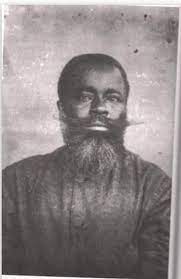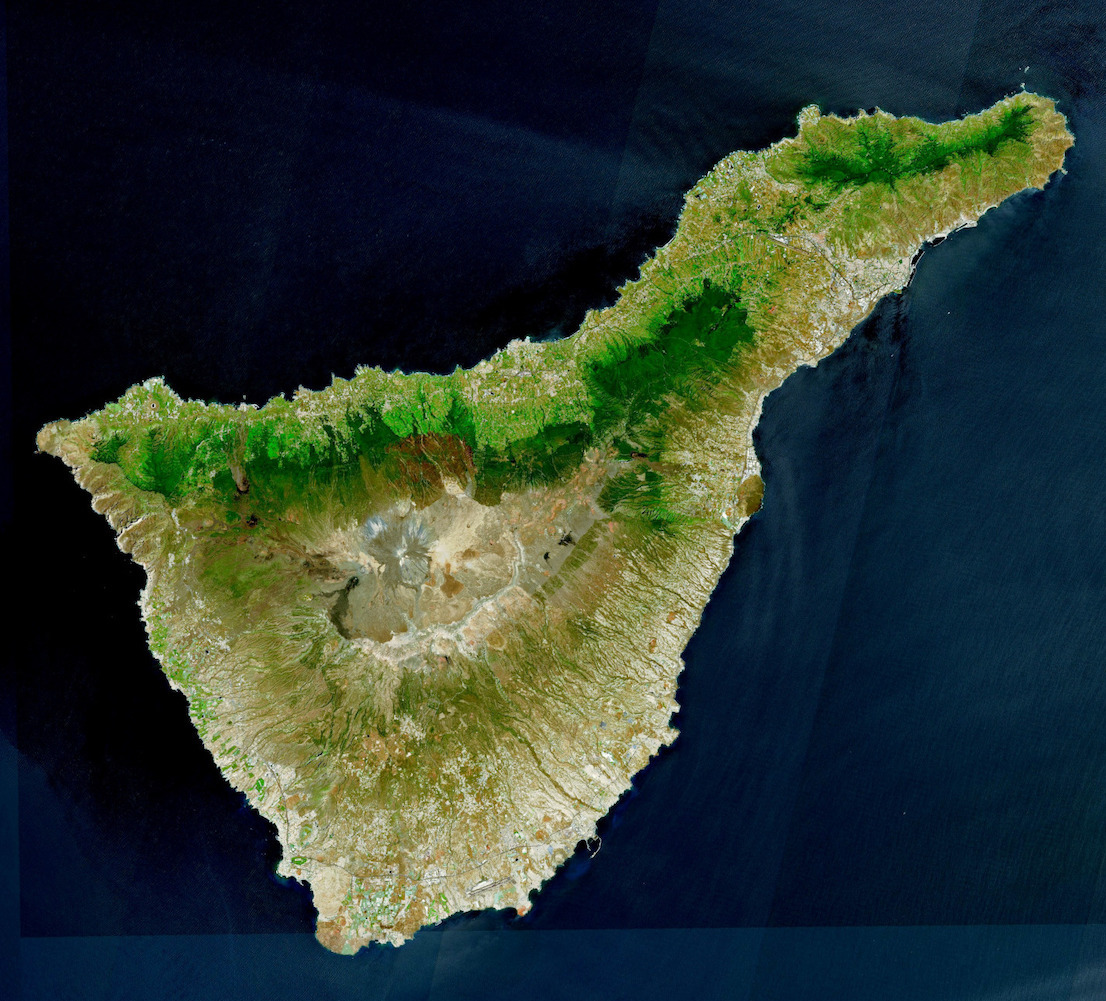|
Oko Jumbo
Chief Oko Jumbo (died 1891) was a chief in the Kingdom of Bonny. Originally of Igbo origin, Chief Jumbo rose through the ranks in the Kingdom of Bonny, a state in the Niger Delta, now part of Rivers State, Nigeria. For many years in the 19th century, he was the effective ruler of Bonny. Though not the king in Bonny, and Warribo was the technical head of the Fubara Manilla Pepple House, "Oko Jumbo and Ja Ja were looked upon by every one as being the rulers of Bonny". Background The Kingdom of Bonny, originally called Ibani or Ubani, is a traditional state based on the town of Bonny in Rivers State, Nigeria. The kingdom was inhabited by the Ijo. Bonny rose to power beginning in the 15th century with the coming of the Portuguese and the Atlantic slave trade, acting as a depot for slaves brought from the interior. In the 19th century, the kingdom was forced by the British to end the slave trade. Trade in palm oil replaced the trade in slaves. Early career Jumbo was a ... [...More Info...] [...Related Items...] OR: [Wikipedia] [Google] [Baidu] |
Samuel Ajayi Crowther
Samuel Ajayi Crowther ( – 31 December 1891) was a Yoruba linguist, clergyman, and the first African Anglican bishop of West Africa. Born in Osogun (in what is now Ado-Awaye, Oyo State, Nigeria), he and his family were captured by Fulani slave raiders when he was about twelve years old. This took place during the Yoruba civil wars, notably the Owu wars of 1821–1829, where his village Osogun was ransacked. Ajayi was later on resold to Portuguese slave dealers, where he was put on board to be transported to the New World through the Atlantic. Crowther was freed from slavery at a coastal port by the Royal Navy's West Africa Squadron, which was enforcing the British ban against the Atlantic slave trade. The liberated peoples were resettled in Sierra Leone. In Sierra Leone, Ajayi adopted the English name Samuel Crowther, and began his education in English. He adopted Christianity and also identified with Sierra Leone's then ascendant Krio ethnic group. He studied languages ... [...More Info...] [...Related Items...] OR: [Wikipedia] [Google] [Baidu] |
19th-century Nigerian People
The 19th century began on 1 January 1801 (represented by the Roman numerals MDCCCI), and ended on 31 December 1900 (MCM). It was the 9th century of the 2nd millennium. It was characterized by vast social upheaval. Slavery was abolished in much of Europe and the Americas. The First Industrial Revolution, though it began in the late 18th century, expanded beyond its British homeland for the first time during the 19th century, particularly remaking the economies and societies of the Low Countries, France, the Rhineland, Northern Italy, and the Northeastern United States. A few decades later, the Second Industrial Revolution led to ever more massive urbanization and much higher levels of productivity, profit, and prosperity, a pattern that continued into the 20th century. The Catholic Church, in response to the growing influence and power of modernism, secularism and materialism, formed the First Vatican Council in the late 19th century to deal with such problems and confirm ce ... [...More Info...] [...Related Items...] OR: [Wikipedia] [Google] [Baidu] |
People From Colonial Nigeria
The term "the people" refers to the public or common mass of people of a polity. As such it is a concept of human rights law, international law as well as constitutional law, particularly used for claims of popular sovereignty. In contrast, a people is any plurality of persons considered as a whole. Used in politics and law, the term "a people" refers to the collective or community of an ethnic group or nation. Concepts Legal Chapter One, Article One of the Charter of the United Nations states that "peoples" have the right to self-determination. Though the mere status as peoples and the right to self-determination, as for example in the case of Indigenous peoples (''peoples'', as in all groups of indigenous people, not merely all indigenous persons as in ''indigenous people''), does not automatically provide for independent sovereignty and therefore secession. Indeed, judge Ivor Jennings identified the inherent problems in the right of "peoples" to self-determination, as i ... [...More Info...] [...Related Items...] OR: [Wikipedia] [Google] [Baidu] |
Year Of Birth Missing
A year is a unit of time based on how long it takes the Earth to orbit the Sun. In scientific use, the tropical year (approximately 365 solar days, 5 hours, 48 minutes, 45 seconds) and the sidereal year (about 20 minutes longer) are more exact. The modern calendar year, as reckoned according to the Gregorian calendar, approximates the tropical year by using a system of leap years. The term 'year' is also used to indicate other periods of roughly similar duration, such as the lunar year (a roughly 354-day cycle of twelve of the Moon's phasessee lunar calendar), as well as periods loosely associated with the calendar or astronomical year, such as the seasonal year, the fiscal year, the academic year, etc. Due to the Earth's axial tilt, the course of a year sees the passing of the seasons, marked by changes in weather, the hours of daylight, and, consequently, vegetation and soil fertility. In temperate and subpolar regions around the planet, four seasons are ... [...More Info...] [...Related Items...] OR: [Wikipedia] [Google] [Baidu] |
1891 Deaths
Events January * January 1 ** A strike of 500 Hungarian steel workers occurs; 3,000 men are out of work as a consequence. **Germany takes formal possession of its new African territories. * January 4 – The Earl of Zetland issues a declaration regarding the famine in the western counties of Ireland. * January 5 **The Australian shearers' strike, that leads indirectly to the foundation of the Australian Labor Party, begins. **A fight between the United States and Lakotas breaks out near Pine Ridge agency. **A fight between railway strikers and police breaks out at Motherwell, Scotland. * January 7 ** General Miles' forces surround the Lakota in the Pine Ridge Reservation. ** The Inter-American Monetary Commission meets in Washington DC. * January 9 – The great shoe strike in Rochester, New York is called off. * January 10 – in France, the Irish Nationalist leaders hold a conference at Boulogne. The French government promptly takes loan. * J ... [...More Info...] [...Related Items...] OR: [Wikipedia] [Google] [Baidu] |
Nigerian Traditional Rulers
Nigerian traditional rulers often derive their titles from the rulers of independent states or communities that existed before the formation of modern Nigeria. Although they do not have formal political power, in many cases they continue to command respect from their people and have considerable influence in their community. Though their bearers usually maintain the monarchical styles and titles of their sovereign ancestors, both their independent activities and their relations with the central and regional governments of Nigeria are closer in substance to those of the high nobility of old Europe than to those of actual reigning monarchs. Pre-colonial period Modern Nigeria encompasses lands traditionally occupied by highly diverse ethnic groups with very different languages and traditions. In broad terms, the southeast was occupied mainly by Igbo, the Niger Delta by Edo and Igbo related people, the southwest by Yoruba and related people and the north by Hausa and Fulani ... [...More Info...] [...Related Items...] OR: [Wikipedia] [Google] [Baidu] |
Tenerife
Tenerife ( ; ; formerly spelled ''Teneriffe'') is the largest and most populous island of the Canary Islands, an Autonomous communities of Spain, autonomous community of Spain. With a land area of and a population of 965,575 inhabitants as of April 2025, it is the most populous island in Spain and the entire Macaronesia region. Tenerife is also home to 42.7% of the total population of the archipelago. More than seven million tourists (7,384,707 in 2024) visit Tenerife each year, making it by far the most visited island in the archipelago. It is one of the most important tourist destinations in Spain and the world, hosting one of the world's largest carnivals, the Carnival of Santa Cruz de Tenerife. The capital of the island, , is also the seat of the island council (). That city and are the co-capitals of the Autonomous communities of Spain, autonomous community of the Canary Islands. The two cities are both home to governmental institutions, such as the offices of the preside ... [...More Info...] [...Related Items...] OR: [Wikipedia] [Google] [Baidu] |
River Cess
River Cess is the capital city of Rivercess County, Liberia Liberia, officially the Republic of Liberia, is a country on the West African coast. It is bordered by Sierra Leone to Liberia–Sierra Leone border, its northwest, Guinea to Guinea–Liberia border, its north, Ivory Coast to Ivory Coast–Lib .... As of the 2008 national census, the population stood at 2,578. It received its original name Cestos from Portuguese traders in the early 16th century from the baskets that were produced and sold in the town. Cestos in Portuguese and Spanish means basket. References Populated places in Liberia Rivercess County County capitals in Liberia Port cities in Liberia {{Liberia-geo-stub ... [...More Info...] [...Related Items...] OR: [Wikipedia] [Google] [Baidu] |
Liverpool
Liverpool is a port City status in the United Kingdom, city and metropolitan borough in Merseyside, England. It is situated on the eastern side of the River Mersey, Mersey Estuary, near the Irish Sea, north-west of London. With a population of (in ), Liverpool is the administrative, cultural and economic centre of the Liverpool City Region, a combined authority, combined authority area with a population of over 1.5 million. Established as a borough in Lancashire in 1207, Liverpool became significant in the late 17th century when the Port of Liverpool was heavily involved in the Atlantic slave trade. The port also imported cotton for the Textile manufacture during the British Industrial Revolution, Lancashire textile mills, and became a major departure point for English and Irish emigrants to North America. Liverpool rose to global economic importance at the forefront of the Industrial Revolution in the 19th century and was home to the Liverpool and Manchester Railway, firs ... [...More Info...] [...Related Items...] OR: [Wikipedia] [Google] [Baidu] |
Stanley Founding Of Congo Free State 234 Sanatorium At Bonny
Stanley may refer to: Arts and entertainment Film and television * ''Stanley'' (1972 film), an American horror film * ''Stanley'' (1984 film), an Australian comedy * ''Stanley'' (1999 film), an animated short * ''Stanley'' (1956 TV series), an American situation comedy * ''Stanley'' (2001 TV series), an American animated series Other uses in arts and entertainment * ''Stanley'' (play), by Pam Gems, 1996 * Stanley Award, an Australian Cartoonists' Association award * '' Stanley: The Search for Dr. Livingston'', a video game Businesses * Stanley, Inc., an American information technology company * Stanley Aviation, an American aerospace company * Stanley Black & Decker, formerly The Stanley Works, an American hardware manufacturer ** Stanley Hand Tools, a division of Stanley Black & Decker * Stanley bottle, a brand of food and beverage containers * Stanley Electric, a Japanese manufacturer of electric lights * Stanley Furniture, an American furniture manufacturer * The Sta ... [...More Info...] [...Related Items...] OR: [Wikipedia] [Google] [Baidu] |







